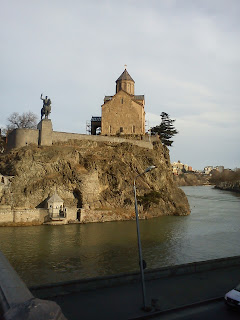Agritourism - first part
The phenomenon of mass tourism saw the hotel building boom in many areas, for the quality of the services, for the perception of status symbol of being able to spend holidays in hotel gave to post-war generations and finally yet importantly, because tourists felt very little travelers. They felt and wanted to be treated like tourists, which means buying products designed and marketed for tourism. The world of hotel tourism is that where everyday life revolves around the idea of a holiday. For tourists this remains the ideal and most congenial dimension to satisfy their needs. Indeed, it is a dimension that has reached a very high level of quality and sophistication through a huge economic, cultural and knowledge investment in the hotel and cruise sector, huge floating hotels that lead the tourist to various destinations without forcing him to be travelers.
And this is the pivotal point around which an alternative form to that of hotels of accommodation is constantly growing: many tourists today feel more travelers than tourists. Or they want to experience a traveler's experience more than to enjoy the services offered to a tourist. They do not want their "temporary home" to move with them from one coastal city to another. The meaning of their travel is also to move from house to house, to reach their "temporary home" in a city, live it with the residents, - to the possible extent as a resident - and then start the process again in the next destination.
We live in a time when different figures are converging in the tourism sector: tourists and travelers. Not that the latter had died out in previous decades, but the phenomenon is growing numerically and is creating its own market. And in flexibility and in some way volatility of an industry such as tourism, the processes of hybridization between figures, structures and services are constantly intertwined, so much so that the managers of extra-luxury hotel chains are considering to incorporate in own spaces airbnb projects. Phenomena born to reduce accommodation costs now exist regardless of costs. The hybridization is complete: it involves the profiles of tenants and visitors, the incomes and the distributions.
Here, in accordance with the focus required in a blog about oudoor sports I flash out extra-urban rental solutions, leaving to the reader the agility to extend the principles described to other destinations.
The case study here is a family of mountain bikers who want to visit an area of Liguria, and finds online a beautiful farm, located near a cool network of trails and not far from a couple of characteristic villages.
What is the story behind this choice? What brought them there? If later we will deal with how this type of tourist demand came about, here we will briefly focus on this type of offer, the farmhouses.
The history of agritourism in Europe traces back to Germany a century and a half ago. Only after the Second World War, however, did this type of accommodation offer begin to grow, later to record a real boom in the 70s and then. In the following twenty years step by step it went to the fore of visibility as a national phenomenon. The peasants, who were faced with an agricultural crisis of continental dimensions, saw in tourism the possibility of diversifying their earnings, and began to invest in rural architecture buildings. In Germany the phenomenon has reached the size of tens of thousands of agricultural operators who have put their structures on the market to host, the turnover is well above one billion euros. The most popular destinations are Bavaria and Baden-Wüttenberg.
The tourist market contributes from 25% to 35% to the economy of German farmhouses. Tourists are mostly of middle class and age, and they are looking for an escape from the urban life, relaxation, the contact with nature, and local uniqueness.
The advantages of this form of tourism are first of all that they allow agricultural projects otherwise condemned to fail to remain economically sustainable. Furthermore, the earnings remain in the territory where they are generated, which is also a sustainability requirement. Farmers do not lose their professional and cultural identity; rather they promote them through an act of sharing.
This is fully in line with the core principles of sustainable tourism.
For More insights:
Jaime A. Seba (ed.), Ecotourism and sustainable tourism, Apple Academic Press, 2012;
Katia Laura Sidali, Achim Spiller and Birgit Schulze (Eds.), Food, Agri-Culture and Tourism, Spinger, 2011.


Commenti
Posta un commento